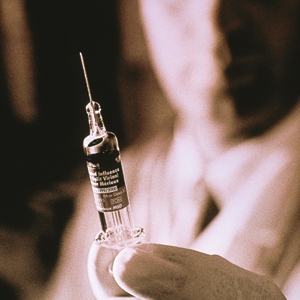HPV vaccinations do not increase the risk of serious side effects, study finds

Human papilloma virus vaccinations are effective in protecting young women against cervical lesions and do not increase the risk of serious side effects, a new study has found.
Cochrane researchers reviewed evidence from 26 studies for HPV vaccines and found that vaccination reduced the risk of developing pre-cancer in young women without HPV.
They also saw that the vaccination does not appear to increase the risk of serious side effects, with no significant difference between the vaccination and control groups.
The review evaluated evidence for HPV vaccines in women who were free of high-risk HPV at the time of the vaccination, and all women regardless of HPV status.
This included the results of 26 studies with 73,428 women, over the last eight years.
The paper found that the vaccines reduced the risk of cervical pre-cancer from 341 to 157 per 10,000 among women aged 15 to 26 years.
It also saw the risk for any pre-cancer lesions drop from 559 to 391 per 10,000.
However the team noted that the vaccine did not work as well in older women between 25 to 45 years, and suggested this may be because these patients are more likely to have been exposed to HPV already.
The evidence also showed that the vaccines do not appear to increase the risk of serious side effects, which occured in around 7% of patients in both the HPV vaccinated and control groups.
The researchers did not see an increased risk of miscarriage in women who became pregnant after vaccination.
However they emphasised that more data would be required to provide certainty about very rare side effects and the effect vaccines have on rates of stillbirth, and babies born with abnormalities in those who became pregnant around the time of recieving a vaccination.
Lead author on the study Dr Marc Arbyn, from the Unit Cancer Epidemiology at the Belgian Cancer Centre, said that the Global Advisory Committee on Vaccine Safety at the WHO has ‘concluded that the risk-benefit profile of prophylactic HPV vaccines remains favourable and expressed its concerns about unjustified claims of harm that lack biological and epidemiological evidence, and which may affect the confidence of the public’.
He said that the committee has ‘encouraged health authorities to continue surveillance and examination for potential adverse events’.
Consultant in gynaecological oncology at Musgrove Park Hospital, Somerset Dr Jo Morrison said: ‘These data show that immunizing against HPV infection protects against cervical pre-cancer, and it is very likely that this will reduce cervical cancer rates in the future.
‘However, it cannot prevent all cervical cancer and it is still important to have regular screening, even if you have been vaccinated.’
She added: ‘Cervical cancer can take many years to develop following HPV infection and development of pre-cancer lesions, therefore long-term follow-up studies are needed to find out the effects of HPV vaccination on cervical cancer rates.’
Last year the Joint Committee on Vaccination and Immunisation recommended that the HPV vaccination not be extended to boys, stating that it is not cost effective and that good vaccine uptake in girls had already substantially reduced the risk of infection in males.
Pulse October survey
Take our July 2025 survey to potentially win £1.000 worth of tokens

Visit Pulse Reference for details on 140 symptoms, including easily searchable symptoms and categories, offering you a free platform to check symptoms and receive potential diagnoses during consultations.









